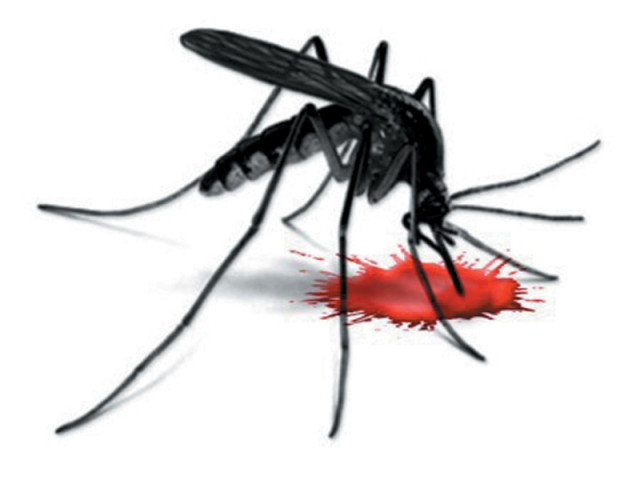Dengue mosquito: ‘It likes stagnant water whether clean or muddy’
Expert says it prefers darkness, not just dawn and dusk.

The perception that dengue mosquito breeds only on clean water is unfounded. Latest research suggests that the mosquito may lay eggs in clean or muddy water that has been stagnant for six days.
This was stated by Entomologist Prof Anjum Sohail, the chairman of Department of Entomology at University of Agriculture, Faisalabad.
He was speaking at an awareness raising seminar on dengue fever, its symptoms and precautions to be taken for its prevention at Laboratory High School for Girls. The seminar was organised by UAF’s Career Development Centre.
Prof Sohail said that the mosquito was attracted towards water with traces of dust in it. “There is no risk of dengue mosquito laying its eggs in water kept in a pot for a day,” he said. However, he added, if that pot is kept in the open for six days it may carry some particles of dust and attract dengue mosquito to breed in it.
He said another common misconception was about the time of day when the mosquito was most active. He said there was no research to back up the claim that this mosquito was more active at dawn and dusk hours. Behavioral studies suggested that it preferred biting in darkness, he added. “During daytime, dengue mosquitoes are more likely to bite people in rooms with insufficient lighting,” he said.
The professor said swelling of face, hands and feet and random bleeding were some symptoms of dengue haemorrhagic fever. People with these symptoms should be taken to a physician without any delay, he added. Other symptoms of the disease were fever, headaches, muscle and joint aches, nausea and skin rashes.
He said prevention measures were critical as there was no vaccine so far to immunise people against the disease. Breeding of dengue mosquitoes could be prevented by maintaining hygiene at homes and workplaces, ensuring timely removal of stagnant water from pots and other containers, preventing clogging of drains, covering all water containers; regularly changing water in flower vases and pots for pets and keeping unused and old tyres covered and dry.
In addition, he said, mosquito repellents should be used to prevent mosquito bite, aerosols and coils to kill mosquitoes.
He urged the students to wear long sleeve shirts and use mosquito nets during sleeping hours.
Laboratory High School Headmistress Tasnim Zubair urged the students to educate their communities about the symptoms and prevention. She said the students should take the lead in adopting these measures at their homes.
CDC programme officers Asifa Naz and Aneela Javaid also attended the talk.
Published in The Express Tribune, March 10th, 2012.


















COMMENTS
Comments are moderated and generally will be posted if they are on-topic and not abusive.
For more information, please see our Comments FAQ